Fantasia is a huge genre film festival, and this year the total number of features playing was just north of 150. I covered a total of 57 of these, barely more than a third, so my Top 10 here is based on the films I managed to see. They are presented here in alphabetical order. Keep an eye out for these films hopefully coming to festivals, theaters and/or home video hopefully soon!
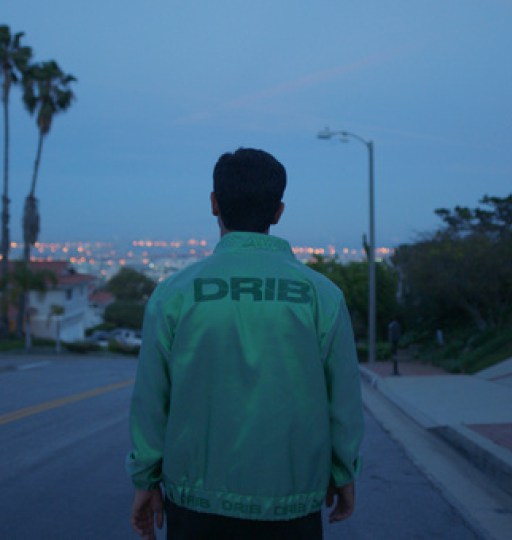
DRIB (Norway, dir. Kristoffer Borgli)
In 2014, comedian/performance artist Amir Asgharnejad made a series of viral videos of himself trying to start fights with random people on the street and getting his ass kicked. The project worked and he got millions of views from all around the world, but he also got something he never would have expected. The marketing company working for a popular brand of energy drink approached him to do a conceptual campaign that would be “canceled” and subsequently leaked to the press to generate controversy and tons of free publicity. But what the head of the campaign didn’t know is that Amir’s videos were fake—he didn’t pick people at random, he had actors play the people he approached. But he decided to take the job to see what happened, leading to one of the weirdest weeks of his life. DRIB is a sort of hybrid documentary and narrative fiction feature in which Asgharnejad tells the story to writer/director Kristoffer Borgli in an interview and plays himself in hilarious and unsettling dramatizations of the events of that week. At one point when Amir refuses to take Borgli’s direction, the director muses that maybe it wasn’t a good idea to let his friend play himself “in a story about how difficult he is to work with.” Brett Gelman gives a spectacularly unhinged performance as Brady Thompson, the fictionalized version of the man who concocted the campaign, and actor Adam Pearson appears playing himself in a parallel experience working on a campaign for Skin Loft and staying in the same hotel. It’s such a bizarre story that Asgharnejad’s reluctance to embellish details for the film is understandable, but the friction between writer/director Borgli’s instincts as a filmmaker and Amir wanting to tell the story as it happened is part of what makes DRIB so funny and thrilling. The film has been picked up for U.S. distribution by Gravitas Ventures, so hopefully it will find the audience it deserves here sooner than later.

THE ENDLESS (USA, dir. Justin Benson & Aaron Moorhead)
Brothers Justin and Aaron Smith (writer/directors Justin Benson and Aaron Moorhead, respectively) are muddling along in their lives without much direction. They grew up in a “UFO cult” and escaped in their teens, but after a brief period of public interest they’re stuck in dead-end jobs. Aaron wants to go back to the cult’s compound for a visit, and after some reluctance Justin grudgingly agrees. They arrive to find things exactly the way they were when they left. In fact, not just the grounds, but the people are still exactly the same. Aaron finds himself attracted to Anna (Callie Hernandez), a young woman who used to babysit him when he was younger and who still looks the same age. Justin chalks it up to their strict regimen of organic foods, exercise, and hard work, but as the brothers spend a few days in the camp it starts to look like something else might be the source of the cult members’ youthful vigor–and it may already be too late for the brothers to escape again. Benson & Moorhead’s debut feature RESOLUTION was a brilliant take on the basic “cabin in the woods” template that spiraled out from the tense relationship between two best friends to encompass a brain-breaking cosmic horror. THE ENDLESS is something of a return to that world, and it’s arguably even better. The writer/directors have a convincing fraternal chemistry, and they’re a great comic team as well. THE ENDLESS expands on the mythology established in their first film and the obscure online companions that helped flesh out this world a little beyond the text of the film itself. The writer/director/stars manage an impressive tightrope act between the comic and horrifying, and while it’s certainly not a requirement to see RESOLUTION before this film it is that rare sequel or companion film that not only improves on its predecessor, but actually improves the experience of watching its predecessor. This is one of the biggest surprises and best films of the year in any genre.
Note: THE ENDLESS will be released by Well Go USA in 2018.
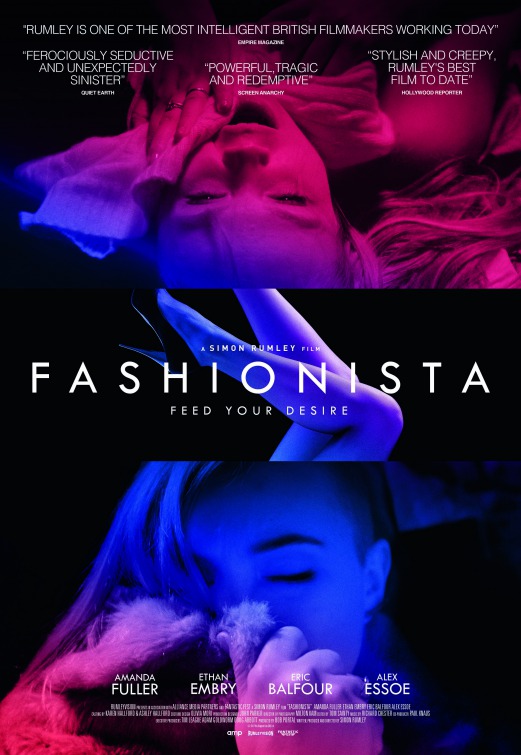
FASHIONISTA (UK, dir. Simon Rumley)
Married couple April (Amanda Fuller) and Eric (Ethan Embry) run a vintage clothes store in Austin that their whole lives revolve around. They’re still reeling from a failed business partnership that they sunk years into when April starts to suspect Eric is having an affair with their employee Sherry (Alexandria DeBerry). After kicking Eric out of their shared apartment April meets the rich and mysterious Randall (Eric Balfour), a man whose obsession with clothes may rival her own. FASHIONISTA hangs on a spectacular performance by Amanda Fuller, who gave a similarly impressive performance in director Simon Rumley’s RED, WHITE, AND BLUE. Rumley has a special talent for portraying pathological behaviors in an unsettlingly immediate way, and here he applies that to April’s erotic obsession with clothing. FASHIONISTA covers a wide range of emotional territory: it’s sexy, funny, heartbreaking, and terrifying by turns. As dark as it gets, though, this is ultimately Rumley’s most optimistic and humane film by a wide margin.

JUNK HEAD (Japan, dir. Takahide Hori)
Thousands of years in the future, mankind has built cities reaching far into the skies. Somewhere below live the descendants of a class of cloned workers who rose up against humanity nearly two millennia ago. When a crisis arises among the human population, an explorer is sent down the lower levels on a desperate mission, but before he even lands his ship is destroyed and his head (encased in a robotic helmet) removed from his body. A scientist puts the head on a new body, but the explorer has forgotten who he is, and plunges into a series of misadventures with the bizarre inhabitants of the lower depths. JUNK HEAD is an astonishing technical achievement, a nearly two-hour stop-motion sci-fi epic made by Takahide Hori and a handful of collaborators over the course of several years. Like Nick DiLiberto’s hand-drawn animated feature NOVA SEED (which played Fantasia last year), JUNK HEAD is an undiluted vision that looks to have been beamed directly from Hori’s brain onto the screen. The creature design is imaginative and nightmarish, but for all the scary stuff happening JUNK HEAD is surprisingly funny. Its characters speak in multiple invented languages, so there’s not a single word of decipherable dialogue for the entire film, but the subtitles and expressive character designs ably tell the story. It’s such an impressive feat that the abrupt ending is a massive letdown; the film ends at what feels like the start of the third act. Here’s hoping Hori and the citizens of his crazy little world return with a sequel to finish the story sooner than later!
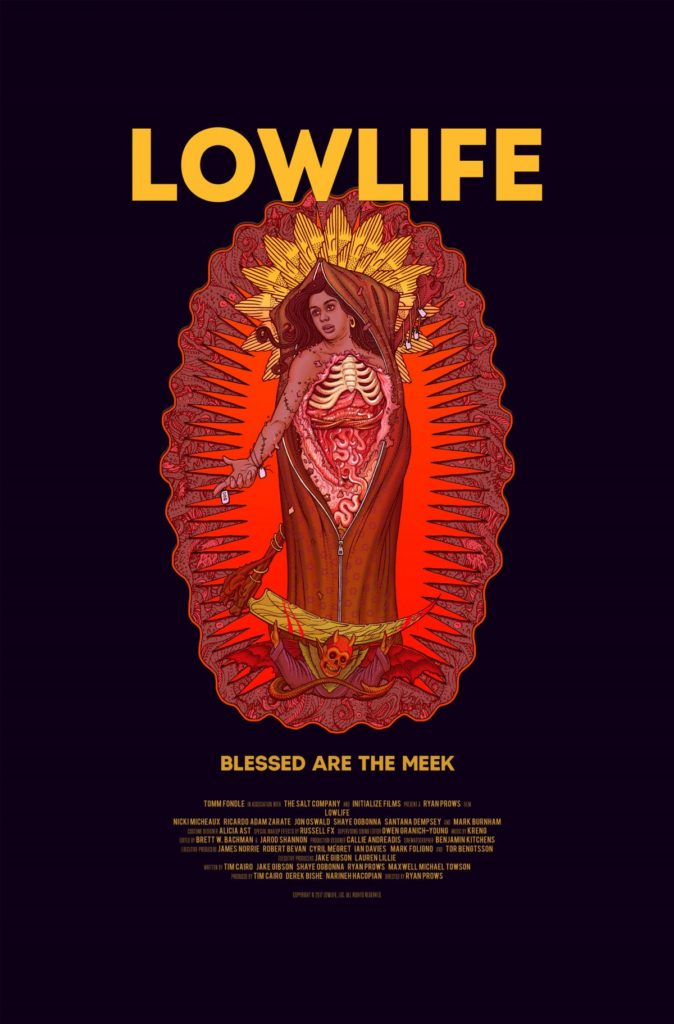
LOWLIFE (USA, dir. Ryan Prows)
Teddy (Mark Burnham) is a sleazy crook whose grimy fast-food taco place hides a chamber of horrors where he engages in human trafficking, involuntary organ transplants, drug dealing, and any other number of unsavory activities. His muscle is El Monstruo (Ricard Adam Zarate), youngest and smallest son of the legendary luchador of the same name, whose blackout-inducing rages have contributed to his fall. But El Monstruo is blinded to Teddy’s evil by his own loyalty and the fact that Teddy introduced him to Kaylee (Santana Dempsey), a struggling addict who is carrying El Monstruo’s child. When Teddy orders accountant Keith (Shaye Ogbonna) to track down Kaylee and bring her to the taco shop in order to make up for embezzling from Teddy’s side business, Keith’s freshly-paroled best friend Randy (Jon Oswald) and harried motel owner Crystal (Nicki Micheaux) are dragged into a violent and confusing afternoon that obviously will not end well for much of anybody. LOWLIFE is the feature directorial debut of Ryan Prows, who co-wrote the film’s screenplay with his writing collaborator Shaye Ogbonna and their co-writers on the web series BOOMERANG KIDS. It makes sense to be apprehensive when the opening credits list five screenwriters, but the final result certainly doesn’t feel like the kind of tonal patchwork many films with so many writers have. The film is gruesomely violent, but it’s also hilarious and touching, thanks to a spectacular cast. Its fractured timeline and criss-crossing cast of low-level criminals obviously owes a debt to Quentin Tarantino and PULP FICTION in particular, but LOWLIFE has its own highly unique charms and never feels like anything but itself. This is one of the best independent films of the year, and it sets a damned high bar for Prows and company to clear for their next feature outing. Whenever and whatever it is, I can’t wait to see it.

MOST BEAUTIFUL ISLAND (USA, dir. Ana Asensio)
Luciana (writer/director Ana Asensio) is an undocumented immigrant living in New York and taking quick gigs for money. She hands out fliers on the street, babysits, whatever she can find to make ends meet on this side of the law. But as hard as she works it’s barely enough, and when she has to visit a doctor the line between the little money she makes and what she needs to survive is thrown into stark relief. Another immigrant Luciana works with frequently, Olga (Natasha Romanova), tells her about a high-paying gig for women like themselves who are hired to attend exclusive parties. It sounds too good to be true, but Luciana takes the information and then spends an exhausting day on a harrowing babysitting job before she can make her way to the party. Once there, she finds it’s not quite what Olga had described. MOST BEAUTIFUL ISLAND is a difficult film to talk about in much detail without spoiling some of its secrets, and this is one of the few recent films in recent memory that is genuinely surprising. Asensio is utterly assured in front of the camera and, in her feature writing and directing debut, behind it as well. The fact that the film was produced by Glass Eye Pix (and the presence of Larry Fessenden in the cast) will tip off savvy viewers to what might be in store, but the focus of the film is squarely on Luciana, her life, how far she’s willing to go to stay in the city, and why. The final section of the film is almost unbearably tense, but that underlying tension is present throughout the entire film in its long tracking shots following Luciana through the streets of the city. This is an amazing debut feature, and one of the best films of the year.
Note: MOST BEAUTIFUL ISLAND has been picked up for U.S. distribution by Orion Pictures and Samuel Goldwyn Films. Hopefully a release date for it will be announced soon.
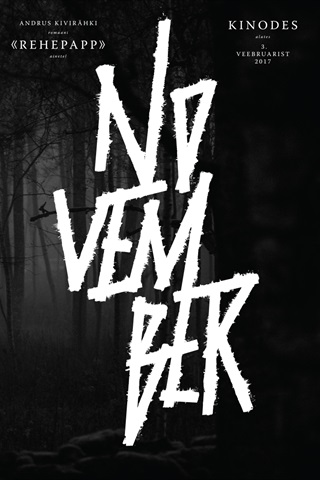
NOVEMBER (Estonia, dir. Rainer Sarnet)
In a remote village, the beautiful young woman Liina (Rea Lest) pines for handsome Hans (Jörgen Liik). But his heart has been stolen away by the lovely Baroness (Jette Loona Hermanis) come from Germany to visit the Baron (Dieter Laser) in his vast estate that towers on a hill near the village. As any self-respecting woman would, Liina seeks the counsel of the local Witch (Klara Eighorn) to change the mind and heart of her beloved. This is no ordinary village: villagers make deals with the Devil (Jaan Tooming) at a crossroads deep in the forest to acquire souls for kraat (shambling golems built out of whatever happens to be laying around) to help them around the house, the plague occasionally wanders into town in the guise of different creatures or objects in hopes of tricking the people into contracting it, and spirits of the dead regularly return on a pilgrimage to get a hearty meal before returning to the other side. NOVEMBER is a stunning, strange portrait of life in a surreal world where magic is commonplace and Christianity inspires more superstitious rumor than comfort or goodwill. While no doubt some audiences will be reminded of THE WITCH—another “folk tale” set among simple folk in an isolated location—this calls to mind more the obsessively detailed medieval world of HARD TO BE A GOD and the grim depiction of daily life in difficult conditions of Béla Tarr’s THE TURIN HORSE. The gorgeous black and white photography (with some footage shot with infrared cameras) by Mart Taniel and excellent score by Jacaszek give NOVEMBER a unique tone, but even at its bleakest the film never takes itself too seriously. This is one of the best films of the year, and when it hits the big screen later this year in North America via Oscilloscope, any cinephile who has the chance catch it during its theatrical run should make it a priority.
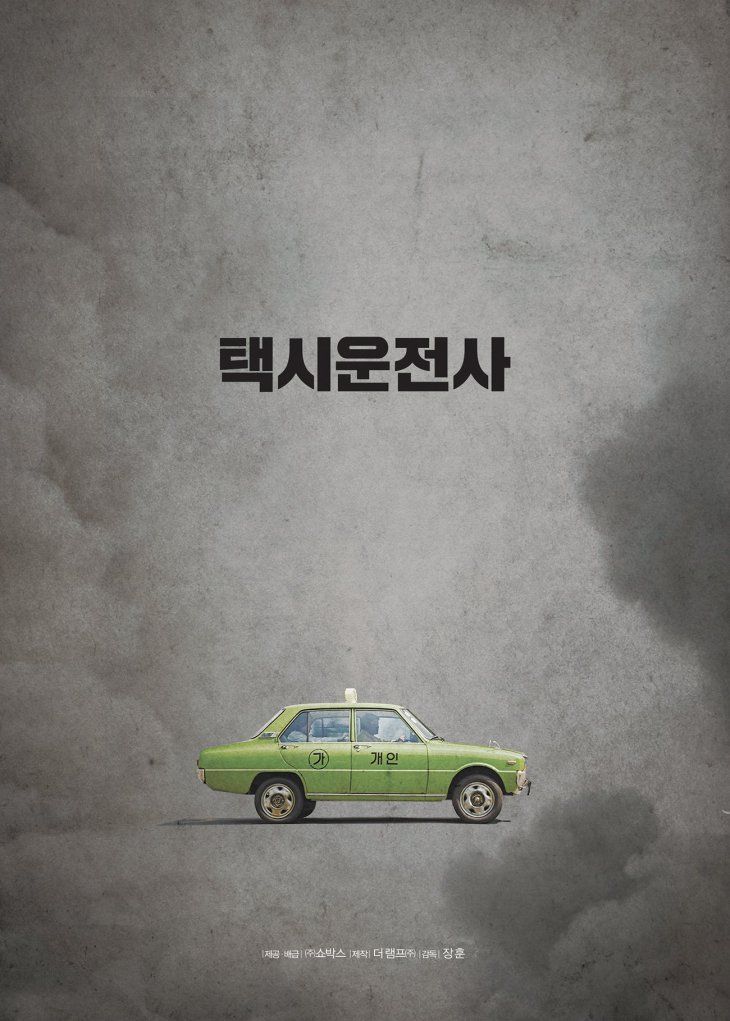
A TAXI DRIVER (South Korea, dir. Hun Jang)
Struggling single father and private taxi driver Man-seop (Song Kang-ho) is too concerned with the immediate difficulties of his life to notice the political and social upheaval happening around him in Seoul. Student protestors take to the streets, but he’s too busy taking care of his daughter and trying to catch up on back rent to give much thought to anything else. When he overhears another taxi driver talking about a foreigner offering to pay a huge fare for a ride to Gwangju, he sneaks away and takes the fare himself. The foreigner in question is Jürgen Hinzpeter (Thomas Kretschmann), a German reporter living in Japan who has caught wind of something big happening in Gwangju. Man-seop drives to the town and finds it barricaded by military forces, but he manages to scheme past a blockade and finds Gwangju all but abandoned. Over the next two days, Man-seop has a difficult awakening as he realizes the importance of getting Hinzpeter and his footage out of the country to tell the world about what is happening. A TAXI DRIVER is based on the true story of Hinzpeter’s trip to Gwangju to document the massacre there, which proved to be instrumental in alerting the world at large to the situation in South Korea in 1980 and changed the course of that country’s history. Song Kang-ho, a frequent on-screen collaborator with noted South Korean directors Park Chan-wook, Bong Joon-Ho, and Kim Jee-woon, gives another excellent and emotionally affecting performance as the titular taxi driver. His realization of the threat to his country and its future—and specifically that of his daughter—is a powerful arc that pulls the action of the film forward. It does feel a tad overlong with maybe one too many set pieces toward the end, but there’s no denying the emotional power of the central relationship between the taxi driver and Hinzpeter, especially given the information about the real story provided at the end of the film. A TAXI DRIVER is a fantastic film, the best of a strong roster of South Korean films at this year’s Fantasia. It is being released in the States this month, and anyone who gets a chance to see it on the big screen should make it a priority.
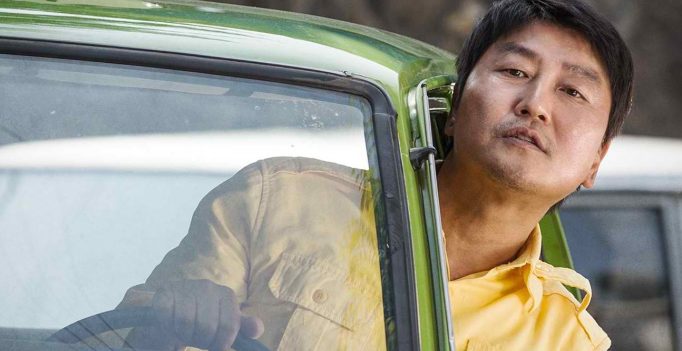

TOKYO IDOLS (UK, dir. Kyoko Miyake)
Pop music is big business in the States, but in Japan it’s taken on a major role in the culture at large. TOKYO IDOLS takes a look at the phenomenon of “idols,” young women who cultivate followings of fans online—mostly adult men—and try to work their way up from tiny local venues to the national stage. The focus of the film is largely on 19-year-old Rio Hiiragi, a popular idol whose star is on the rise, and her #1 fan Koji, a 43-year-old electronics reseller who spends every spare second and dollar on her fandom. Director Kyoko Miyake follows Rio as she performs live cam shows for her fans and does meet and greets after performances where fans get a ticket to shake her hand with purchase of a cd. Between discussions with Rio, Koji, and a few other idols and their fans, Miyake gives the stage to journalists, historians, and cultural commentators who offer bleak observations on what impact idols have had on Japanese culture at large. The most uncomfortable segments of the film focus on extreme ends of the idol culture spectrum. On one side are the annual elections for which members of AKB48–a sprawling idol conglomerate made up of hundreds of teenage girls–will be featured in the main group’s lineup draws hundreds of thousands of votes and dominates the Japanese press. On the other is a small independent group made up of young teen and pre-teen girls and the adult male fans who follow them. TOKYO IDOLS is a fascinating and occasionally disturbing look at a cultural phenomenon with no real analog in the West.

THE VILLAINESS (South Korea, dir. Byung-gil Jung)
Sook-hee (Ok-bin Kim) goes on a rampage and murders an entire compound of goons to get at their boss before the police show up and take her into custody. In the confusion, sensitive data was stolen from the crime boss, but the shadowy organization to whom said information belongs thinks Sook-hee could be an asset. She is taken on as a reluctant trainee to become a sleeper cell, living a normal life until she is activated to perform difficult assassinations. As Sook-hee tries to adjust to her prosaic new life, her work causes her to cross paths with the crime syndicate run by her deceased husband Hyun-soo (Jun Sung). As she finds herself in the middle of a tightening web of intrigue, will Sook-hee be able to figure out who is really on her side? THE VILLAINESS is a wild hybrid of insanely over-the-top action sequences—including a lengthy opening fight shot mostly in first-person—and soapy melodrama. The overall balance tips a little too much toward the latter, but the action set pieces are so hyperactive viewers will probably want the extra time to breathe before the next one kicks in. The cinematography is also ludicrously flashy: by the time the camera swings under a moving motorcycle, you get the feeling even Ryuhei Kitamura would probably think it’s a little much. Still, for sheer inventive mayhem THE VILLAINESS is in a league of its own.
Note: THE VILLAINESS will be released in the United States by Well Go USA on August 25th.

- [CINEPOCALYPSE 2017] FIVE FILMS YOU CAN’T MISS AT CINEPOCALYPSE! - October 31, 2017
- Hop into Jason’s Ride for a Look at the Wild World of Vansploitation! - August 11, 2014
Tags: Aaron Moorhead, Amanda Fuller, Ana Asensio, Animation, Callie Hernandez, Documentaries, Estonia, Ethan Embry, Fantasia Film Festival, Glass Eye Pix, japan, Justin Benson, Larry Fessenden, Montreal, New York, Norway, Ok-bin Kim, Simon Rumley, Song Kang-ho, South Korea, The UK, well go usa





No Comments